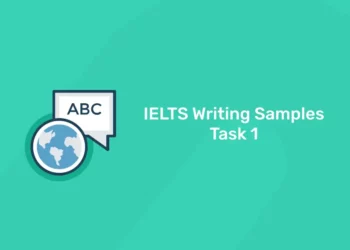Table of Contents
Contracts play important role in civil engineering. They are the foundation for the relationships between clients, contractors, and stakeholders. In civil engineering projects, they outline the scope, cost, duration, and quality of work. Understanding the different types of contracts is essential for project success. In this blog, we will explore the various types of contract in civil engineering. We will understand their significance, advantages, and disadvantages. We will also discuss the relevance of quantity surveying in these contracts.
Start a rewarding career in Quantity Surveying! Book for Free Demo Classes Here!
Types of Contract in Civil Engineering
What is a Contract in Civil Engineering?
A contract in civil engineering is a legal agreement. It is made between two or more parties, mostly involving a client and a contractor. The contract specifies :
- the work to be done,
- the payment terms,
- timelines, and
- other conditions.
It makes sure that all parties know about their responsibilities and obligations. Contracts help in preventing disputes and ensuring smooth project execution.
Types of Contract in Civil Engineering
Civil engineering projects use different types of contracts based on projects. The choice of contract depends on factors like project size, complexity, risk, and client preferences. Below are the main types of contracts commonly used in civil engineering:
- Lump Sum Contract
- Cost Plus Contract
- Unit Price Contract
- Time and Materials Contract
- Design-Build Contract
- Integrated Project Delivery (IPD) Contract
- Target Cost Contract
- Engineering, Procurement, and Construction (EPC) Contract
- Management Contract
Let’s explore each of these contract types in detail.
1. Lump Sum Contract
Definition:
A Lump Sum Contract is also known as a fixed-price contract. The contractor agrees to complete the project for a set price.
Significance:
This type of contract is ideal for projects with well-defined scopes. It is used when the design is complete and the project’s requirements are clear.
Advantages:
- Predictable costs.
- Simple to administer.
- Reduces the risk for the client.
Disadvantages:
- Limited flexibility for changes.
- Contractors may inflate prices to cover risks.
- May lead to disputes over changes.
Relevance to Quantity Surveying:
In a Lump Sum Contract, quantity surveyors plays the main role. They ensure accurate cost estimation and help in avoiding cost overruns.
2. Cost Plus Contract
Definition:
In a Cost Plus Contract, the client pays the contractor for all project costs plus an agreed-upon fee.
Significance:
This contract is suitable for projects where the scope is not well-defined at the outset. It allows flexibility in the design and construction process.
Advantages:
- Flexibility for changes.
- Encourages transparency.
- Suitable for complex projects.
Disadvantages:
- Costs can be unpredictable.
- Requires detailed record-keeping.
- The client bears more financial risk.
Relevance to Quantity Surveying:
Quantity surveyors help track project costs and ensure that the contractor’s claims are justified. Entri’s course can help professionals develop these essential skills.
3. Unit Price Contract
Definition:
A Unit Price Contract involves payment based on the quantity of work completed, multiplied by a unit price.
Significance:
This contract is often used in projects where the quantities of work are not precisely known at the start. It is common in road construction and utility projects.
Advantages:
- Flexibility in adjusting quantities.
- Suitable for repetitive work.
- Easier to accommodate changes.
Disadvantages:
- Final cost can vary.
- Requires accurate quantity measurement.
- Disputes may arise over quantities.
Relevance to Quantity Surveying:
Quantity surveyors are responsible for measuring quantities accurately and ensuring that payments are made according to the contract terms. Entri’s course covers these aspects in detail.
4. Time and Materials Contract
Definition:
A Time and Materials (T&M) Contract pays the contractor for the time spent and materials used.
Significance:
This contract is ideal for projects where the scope is not clearly defined, or for projects requiring frequent changes.
Advantages:
- Flexibility for changes.
- Easier to start work without a complete design.
- Encourages collaboration.
Disadvantages:
- Costs can escalate.
- Requires detailed tracking of time and materials.
- More financial risk for the client.
Relevance to Quantity Surveying:
Quantity surveyors ensure that time and material records are accurate and that the project stays within budget. Entri’s Quantity Surveying course provides the skills needed to manage such contracts.
5. Design-Build Contract
Definition:
In a Design-Build Contract, the contractor is responsible for both the design and construction of the project.
Significance:
This contract streamlines the project process by combining design and construction under one entity. It is suitable for projects where time and efficiency are critical.
Advantages:
- Faster project delivery.
- Single point of responsibility.
- Improved communication between design and construction teams.
Disadvantages:
- Less control for the client over design.
- Potential conflicts of interest.
- Quality may be compromised to reduce costs.
Relevance to Quantity Surveying:
Quantity surveyors in a Design-Build Contract ensure that costs are controlled while maintaining quality. Entri’s course offers insights into managing such integrated contracts.
6. Integrated Project Delivery (IPD) Contract
Definition:
Integrated Project Delivery (IPD) Contracts involve all key stakeholders, including the client, designers, and contractors, working together from the beginning.
Significance:
IPD contracts promote collaboration and aim to optimize project outcomes by involving all parties early in the process.
Advantages:
- Enhanced collaboration.
- Shared risks and rewards.
- Improved project outcomes.
Disadvantages:
- Requires strong teamwork.
- Can be complex to administer.
- Not suitable for all projects.
Relevance to Quantity Surveying:
Quantity surveyors play a vital role in ensuring that costs are shared fairly among all parties. Entri’s Quantity Surveying course can help professionals manage the complexities of IPD contracts.
Start a rewarding career in Quantity Surveying! Book for Free Demo Classes Here!
7. Target Cost Contract
Definition:
In a Target Cost Contract, the client and contractor agree on a target cost for the project. Savings or overruns are shared.
Significance:
This contract incentivizes cost-saving measures and encourages collaboration between the client and contractor.
Advantages:
- Incentives for cost control.
- Encourages collaboration.
- Shared risks and rewards.
Disadvantages:
- Requires accurate cost estimation.
- Disputes may arise over cost savings.
- Complex to administer.
Relevance to Quantity Surveying:
Quantity surveyors ensure that cost targets are realistic and that savings are fairly distributed. Entri’s course covers the skills needed for such contracts.
8. Engineering, Procurement, and Construction (EPC) Contract
Definition:
An EPC Contract involves the contractor handling engineering, procurement, and construction, delivering a complete project.
Significance:
This contract is common in large-scale infrastructure projects, where a single entity is responsible for delivering a turnkey solution.
Advantages:
- Single point of responsibility.
- Predictable outcomes.
- Reduces client involvement.
Disadvantages:
- Less control for the client.
- Potential for cost overruns.
- Quality may be compromised.
Relevance to Quantity Surveying:
Quantity surveyors ensure that costs are managed effectively throughout the project lifecycle. Entri’s Quantity Surveying course offers comprehensive training for managing EPC contracts.
9. Management Contract
Definition:
In a Management Contract, the client hires a contractor to manage the project, with construction work carried out by subcontractors.
Significance:
This contract is ideal for complex projects where the client wants to retain overall control but needs expert management.
Advantages:
- Client retains control.
- Allows for specialist subcontractors.
- Flexibility in design and construction.
Disadvantages:
- Requires strong project management.
- Client bears more risk.
- Can be more expensive.
Relevance to Quantity Surveying:
Quantity surveyors in management contracts ensure that subcontractors are paid fairly and that costs are controlled. Entri’s course equips professionals with the skills to manage these contracts effectively.
Significance of Different Types of Contract in Civil Engineering
Each type of contract serves a specific purpose and is for different project needs. The choice of contract affects the project’s risk distribution, cost control, and overall success. Understanding the significance of these contracts is needed for engineers, contractors, and clients.
- Lump Sum Contracts
- offer predictability, making them ideal for projects with a clear scope.
- Cost Plus Contracts
- provide flexibility, which is beneficial in complex projects.
- Unit Price Contracts
- are useful for projects with variable quantities.
- Time and Materials Contracts
- allow for ongoing adjustments, making them suitable for evolving projects.
- Design-Build Contracts
- streamline the process, reducing project duration.
- Integrated Project Delivery Contracts
- foster collaboration, leading to better outcomes.
- Target Cost Contracts
- incentivize cost control, encouraging efficiency.
- EPC Contracts
- are perfect for large-scale projects requiring a single point of responsibility.
- Management Contracts
- provide expert oversight, ensuring complex projects are well-managed.
|
Engineering Upskilling Courses
|
| MEP Course |
| Structural Design Course |
Advantages and Disadvantages of Contracts
Each contract type comes with its own set of advantages and disadvantages. Below is a summary:
Lump Sum Contract
Advantages:
- Predictable costs.
- Simple to administer.
Disadvantages:
- Limited flexibility.
- Potential for disputes.
Cost Plus Contract
Advantages:
- Flexibility for changes.
- Encourages transparency.
Disadvantages:
- Unpredictable costs.
- Requires detailed record-keeping.
Unit Price Contract
Advantages:
- Flexibility in quantities.
- Suitable for repetitive work.
Disadvantages:
- Final cost variability.
- Requires accurate measurement.
Time and Materials Contract
Advantages:
- Flexibility for changes.
- Collaboration-friendly.
Disadvantages:
- Cost escalation risk.
- Requires detailed tracking.
Design-Build Contract
Advantages:
- Faster delivery.
- Single responsibility.
Disadvantages:
- Less client control.
- Potential quality issues.
Integrated Project Delivery Contract
Advantages:
- Enhanced collaboration.
- Shared risks and rewards.
Disadvantages:
- Complex administration.
- Requires strong teamwork.
Target Cost Contract
Advantages:
- Cost control incentives.
- Encourages collaboration.
Disadvantages:
- Requires accurate estimation.
- Potential for disputes.
EPC Contract
Advantages:
- Single responsibility.
- Predictable outcomes.
Disadvantages:
- Less client control.
- Potential cost overruns.
Management Contract
Advantages:
- Client retains control.
- Specialist subcontractors.
Disadvantages:
- Requires strong management.
- Can be more expensive.
The Role of Quantity Surveyors in Civil Engineering Contracts
Quantity surveyors are essential in managing civil engineering contracts. They ensure that projects stay within budget, that contractors are paid fairly, and that the client’s financial interests are protected. Their role varies depending on the type of contract.
- Lump Sum Contracts
- focus on accurate cost estimation.
- Cost Plus Contracts
- track costs to prevent overruns.
- Unit Price Contracts
- measure quantities to ensure fair payment.
- Time and Materials Contracts
- monitor time and materials used.
- Design-Build Contracts
- control costs while maintaining quality.
- Integrated Project Delivery Contracts
- ensure fair cost-sharing.
- Target Cost Contracts
- manage cost-saving initiatives.
- EPC Contracts
- oversee the entire project budget.
- Management Contracts
- ensure subcontractors are paid fairly.
Entri’s Quantity Surveying course provides the knowledge and skills needed to excel in these roles. It covers all aspects of contract management, from cost estimation to project delivery.
Types of Contract in Civil Engineering: Conclusion
1: What is the main purpose of a Bill of Quantities (BoQ)?
Understanding the different types of contracts in civil engineering is important for project success. Each contract type offers its own benefits and challenges. This makes it essential for us to choose the right one for each project. Quantity surveyors play the main role in managing these contracts. They make sure that the projects are completed on time, within budget, and as per the required quality standards.
Frequently Asked Questions
What is a Lump Sum Contract?
When is a Cost Plus Contract used?
- A Cost Plus Contract is used when scope is unclear.
- The client pays actual costs plus a fee.
- It offers flexibility but can lead to higher costs.
What is the significance of a Unit Price Contract?
- Payment is based on the quantity of work done.
- Suitable for projects where work quantities can vary.
- Final cost depends on the actual work completed.
How does a Time and Materials Contract work?
- The client pays for the time and materials used.
- Ideal for projects that change frequently.
- Requires careful tracking of time and materials.
What is unique about a Design-Build Contract?
- The contractor handles both design and construction.
- This contract speeds up project completion.
- The client has less control over the design.
Why choose an Integrated Project Delivery (IPD) Contract?
- All stakeholders collaborate from the beginning.
- Risks and rewards are shared among everyone.
- It promotes teamwork but needs strong coordination.
What role do quantity surveyors play in these contracts?
- They manage project costs and payments.
- They ensure accurate tracking of work and expenses.
- Quantity surveyors help control the project budget.
























